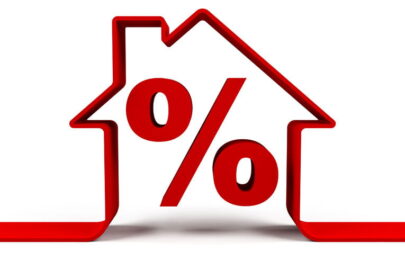The Nationwide Building Society has reported that annual house price growth slowed to 10.5% in July, from the 17-year high of 13.4% recorded the previous month.
In month-on-month terms, house prices fell by 0.5%, after taking account of seasonal effects, following a 0.7% rise in June.
Robert Gardner, Nationwide’s chief economist, said: “The modest fallback in July was unsurprising given the significant gains recorded in recent months. Indeed, house prices increased by an average of 1.6% a month over the April to June period – more than six times the average monthly gain recorded in the five years before the pandemic.
“The tapering of stamp duty relief in England is also likely to have taken some of the heat out of the market. The nil rate band threshold decreased from £500,000 to £250,000 at the end of June (it will revert to £125,000 at the end of September. This provided a strong incentive to complete house purchases before the end of June, especially for higher priced properties. For those purchasing a property above £250,000, the maximum stamp duty saving reduced from £15,000 to £2,500 after the end of June.
“The stamp duty changes drove the number of housing market transactions to a record high of almost 200,000 in June as home buyers rushed to beat the deadline. This was around twice the number of transactions recorded in a typical month before the pandemic and 8% above the previous peak seen in March.
“Land Registry data indicates that higher priced properties have been driving the increase in housing market activity since the pandemic struck.
“For example, the number of transactions involving properties bought for £500,000 or higher increased by 37% over the 12 months to March 2021, compared to a rise of 2% for all properties. As a result, between Q1 2020 and Q1 2021 the share of transactions involving a property valued at £500,000 or above has increased from 12% to 18%.
“There has also been a shift in the composition of property types that have been transacting. Over the past six months the proportion of sales involving detached and semi-detached properties has increased, while the proportion involving flats has declined significantly.
“While tax changes have been important in determining the timing of transactions and the trends noted above, they have not been the main factor prompting people to move in the first place. Amongst homeowners surveyed at the end of April that were either moving home or considering a move, three quarters said this would have been the case even if the stamp duty holiday had not been extended beyond the original March 2021 deadline.
“Shifting housing preferences appear to have been the more important factor in driving the increase in housing market activity, with people reassessing their housing needs in the wake of the pandemic. At the end of April, 25% of homeowners surveyed said they were either in the process of moving or considering a move as a result of the pandemic. Given that only c5% of the housing stock typically changes hands in a given year, it only requires a relatively small proportion of people to follow through on this to have a material impact.”
Nicky Stevenson, managing director at national estate agent group Fine & Country, added: “Annual house price growth remains at a gallop though it has moderated slightly from last month’s exceptional spike.
“While the Chancellor’s tax incentives have begun to taper, a pronounced dip in housing stock means that demand continues to outweigh supply, and this imbalance should continue for some time to come.
“Going forward, the market will remain buoyant though the dynamics are already starting to shift.
“While the clamour in recent times has been for bigger properties with more outdoor space, we may see luxury apartments start to come back into vogue as the drift back to the office starts to gather pace in the big cities.
“In addition, we are still awaiting the return of international buyers which we expect to happen in the autumn, something that should prove a huge boost for Prime London which has been sluggish of late.
“In the meantime, first-time buyers finally have grounds for greater optimism as they continue to pay no stamp duty on properties less than £300,000 while others are now paying much more. This means the balance may finally be shifting back in their favour when bidding on more modestly priced homes, particularly with the added firepower of first-time buyers mortgages behind them.”
